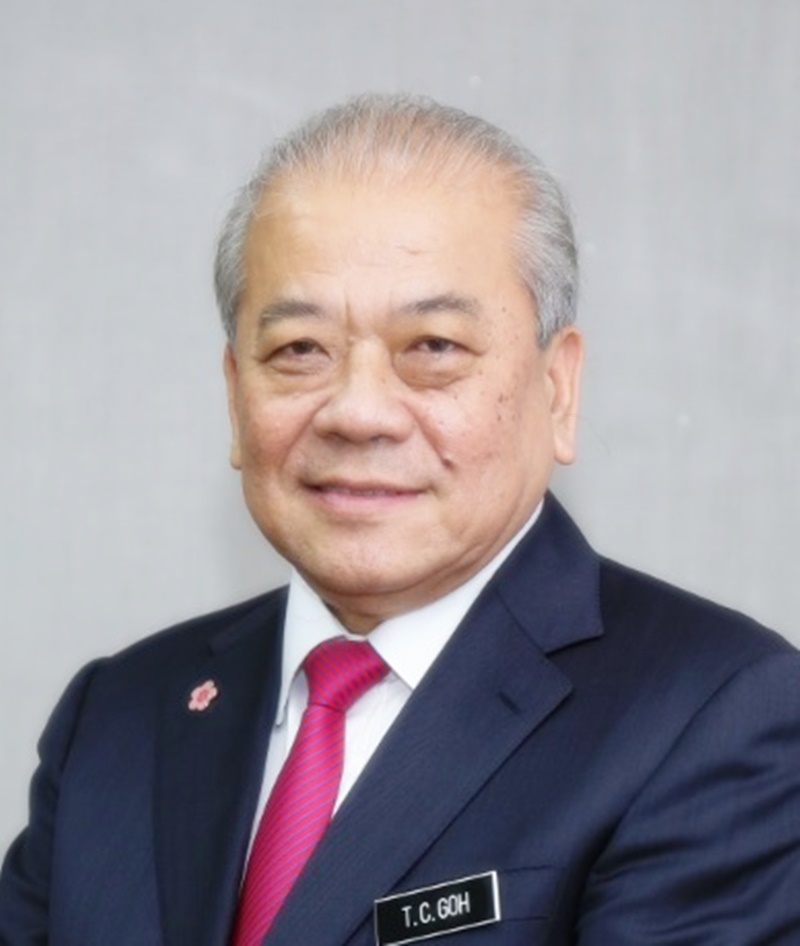KUALA LUMPUR: The Federation of Chinese Associations Malaysia (Huazong) has proposed that the issue of the 51% bumiputera ownership requirement, for local freight forwarding companies, be quickly resolved within the framework of the “transformation and political stability” MoU.
Its President, Tan Sri T.C Goh contended that, instead of instructing the Bumiputera Agenda Steering Unit (Teraju) to study the issue, which would certainly focus on the ‘bumiputera agenda’, it should be handled by an entity which would better reflect the “Malaysian Family” spirit.
He thus opined that such an important issue should be resolved via consensus within the framework of the “transformation and political stability” MoU, which was recently formalised between the government and the opposition.
He proposed that the issue be resolved by the ‘steering committee’ of the said MoU.
Goh who is also President of the Federation of Chinese Associations Sabah (FCAS) proposed this in a statement issued today, while supporting the statement by Bintulu MP, Datuk Sri Tiong King Sing, during the debate session in Parliament, for saying that Teraju should adopt a more comprehensive approach in boosting the competitiveness of bumiputera. Besides this, he also expressed concern over the Finance Minister, Tengku Datuk Seri Zafrul Abdul Aziz’s reply in the Dewan Rakyat on Tuesday that,
Teraju is currently conducting a study on the said issue, and that the findings of this study will be tabled in Cabinet so that a roadmap is drawn up to ensure that bumiputera participation in the logistics sector continues to grow.
Goh noted that, the policy of 51% bumiputera equity in local freight forwarding companies was proposed and adopted by Teraju in 2015 when the current prime minister Datuk Seri Ismail Sabri Yaakob was its chairman. However, the implementation of the policy was exempted in 2016 following an appeal by the Federation of Malaysian Freight Forwarders (FMFF).
In 2016, the Finance Ministry agreed to allow the exemption for local companies with the status of international integrated logistics service provider (ILLS) until December 2020. A second extension of the exemption was given till Dec 31, 2021. The exemption covered ILLS companies that are fully foreign owned or those listed on Bursa Malaysia.
Goh however described such an exemption as a ‘double standard’ and unfair to those non-bumiputera freight forwarding companies which do not possess ILLS status, as they have no choice but to comply with the 51% bumiputera equity requirement.
“Such a regressive policy, if implemented, would inevitably create a ‘crisis of confidence’ for our foreign investors, besides encouraging the ‘crutch’ mentality among the bumiputera which is not helpful to our national unity, as rightly pointed out by Datuk Sri Tiong King Sing,” he said.
Goh who is also a member of Sabah Economic Advisory Council (SEAC) underscored that, while he’s not against the government’s efforts to help elevate the economic status of the bumiputera or underprivileged group of Malaysians, as well as the contributions of Teraju in this aspect all these years, he nonetheless opined that the government of the day should teach the bumiputera how to catch the fish, instead of giving them the fish, in order to really benefit them in the long run.
He thus hoped Teraju could strive to better recognize and understand the current trends of global economy and international free trade, and to fully adopt the “Malaysian Family” concept as its basis of promoting the bumiputera agenda.
He added that, like in the past, the government should continue to encourage business joint ventures between bumiputera and non bumiputera, by providing certain incentives, as one way of elevating the economic status of bumiputera and Malaysians, as a whole. -pr/BNN






